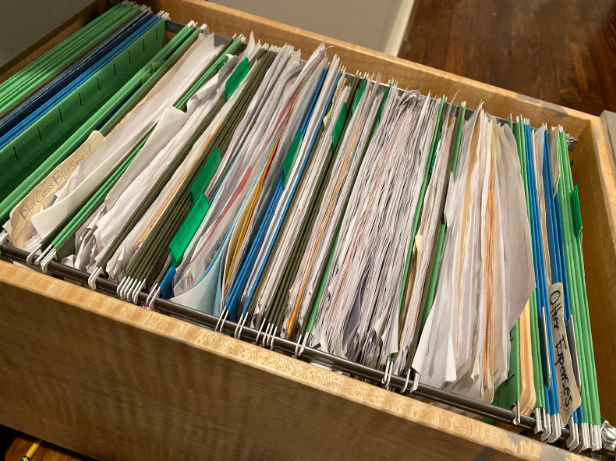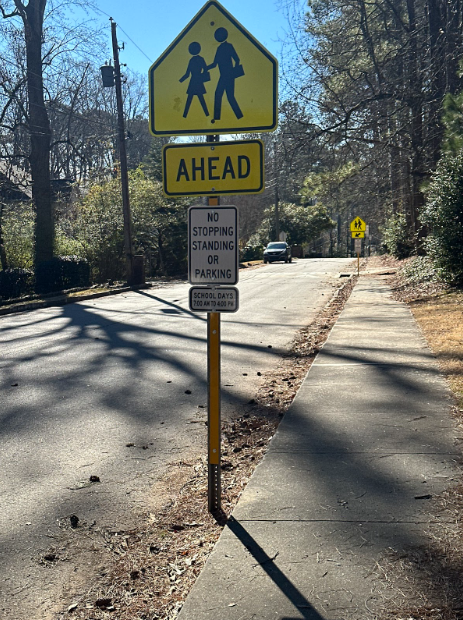Academic stress weighs heavily on Chamblee students, contributing to mental health issues, while teachers and counselors understand the issues and seek academic balance and implements to relieve stress.
Chamblee students spend hours on homework, minimal hours sleeping, and struggle to balance multiple classes daily workload. Counselors recognize the issue that there is sometimes too much work, work due at the same time, or too short of deadlines, but also that teachers need to push students in order for them to understand the material for the following year.
“I try to have a set tone at the beginning of the school year, expectations,” said Biology teacher, Shaheen Begum. “Perhaps they don’t like me at first, but at the end of the year, they know what it was worth and they came back and thank me for keeping that structure and organization in my class.”
Many teachers, such as English teacher James Wallace, try to push students and prepare them for college. He tries base his class around activities that force students to develop time management, discipline, and how to study.
“It’s not like a light switch you turn on and off and suddenly I’m going to spend forty hours a week reading and writing notes,” said Wallace. “If it’s not something you’ve slowly acclimated yourself to, then it is going to be a difficult transition.”
Counselor Tinikia Jones feels that Chamblee is on the right path to combating stress, but would like to see the possibility of homework free weekends to lessen the stress of some students.
“When we have our October break and our Thanksgiving break, we all need to take a break and just relax,” said Jones. “I personally from a counseling perspective would like to see students just relax a little bit during the school year.”
For Begum, homework is not assigned daily. Students have multiple days to complete it, but when they procrastinate, they create stress for themselves to frush to complete it. It is almost inevitable to not assign homework over a weekends or breaks because classes move quickly and there is a lot to cover.
In the 2015-2016 school year, the counseling department did an assessment to gauge students stress. It revealed much of what they already knew — that there is a large number of students suffering from anxiety and stress and the pressures from home to perform at a certain level.
The department is looking to combat students stress issues by giving them coping skills for dealing with stress, but also realizing that stress is a part of life. They also hope to have training for themselves and teachers on how to be flexible, yet rigorous.
“It’s hard to hold students to those high standards, while at the same time taking individual life [into consideration],” said Wallace. I try to handle it on an individual basis, most of the time. But at the same time, if you give in too much, then word gets out that you’re a softy and then everyone’s trying to do it. It’s a fine line.”
However, many students still suffer from academic pressure whether from home or from themselves. Many students go to the counselors to speak about issues involving teachers, parents, relationships, friends, and so forth. A number of students feel more comfortable talking to the counselors than their parents.
“I feel like I’m more comfortable talking to counselors than parents because your counselors don’t really know you, and parents, it’s hard to talk to them,” said junior Jaden Brooks. “They [counselors] are not going to really see you afterward.”
In addition, students who try to balance academics and afterschool activities have to become creative in their study habits. Work can be done before activities or in the mornings, causing students to rush to complete assignments. Many students arrive home late and stay up well into the night to complete assignments.
Some students feel obligated to participate in afterschool activities because they feel that they cannot get into top colleges and universities without them, adding additional work onto their plate and pushing themselves to get into top schools.
“Stress to get into certain colleges, which no matter what a student does academically, they could have the highest GPA, could take every class we’ve taught them to take, they could take every AP class online, there is no guarantee for admissions into these Ivy League colleges,” said Jones. “I hate that students put that stress upon themselves because in the end, they can only present themselves in the best light, but the decision is totally up to someone else.”
This stress to perform at a certain level can pile up and present itself in many forms. Stress can cause students to not sleep or eat, or sleep and eat too much, become frustrated, short tempered, fluctuate their weight, cause acne, physical pain, such as aching bone and body, and the development of mental health issues
Jones has observed here at Chamblee that students that develop mental health issues tend to not socialize or hang out with friends. They aren’t involved and only focus on school. They often compare themselves to other students and feel less than and that their work is inadequate.
However, students with mental health issues have persevered. Chamblee students that have dealt with anxiety and depression or had friends who dealt with it, have claimed that they found it hard to focus on school work and lost the will to work, though venting to parents and the encouragement of friends has helped them.
“They [my friend] weren’t able to focus on their school work as much and their grades suffered a lot and they didn’t want to pay attention in class,” said sophomore Sara Lawrence. “They were very self destructive.”
The National Alliance on Mental Illness claims that twenty percent of youths ages thirteen to eighteen have mental health conditions. Students place high amounts of pressure upon themselves and according to Global Education Magazine, it is the fear of failure that can lead to suicide.
“School is the source of all my stress,” said sophomore Catherine Ng. “To me, it [school] definitely plays a large role in student suicide and rates.”
According to the NAMI, suicide is the second leading cause of death in youths fifteen to twenty-four and ninety percent of teens who commit suicide had underlying mental illnesses.
This pressure to succeed and occasionally, the lack of will to work or continue, is causing teenage suicide. Should school administrations, counseling departments, and teachers be considering student stress levels and mental health when designing lesson plans and plans for the school year?
“Obviously we have to take consideration of [mental health issues], but that doesn’t mean we can always [change the pace] of the classes,” said Begum. “If they are taking gifted magnet classes, if they’re AP classes, depending on the classe they’re taking and the workload they’re putting on themselves, they may have more or less stress.”






